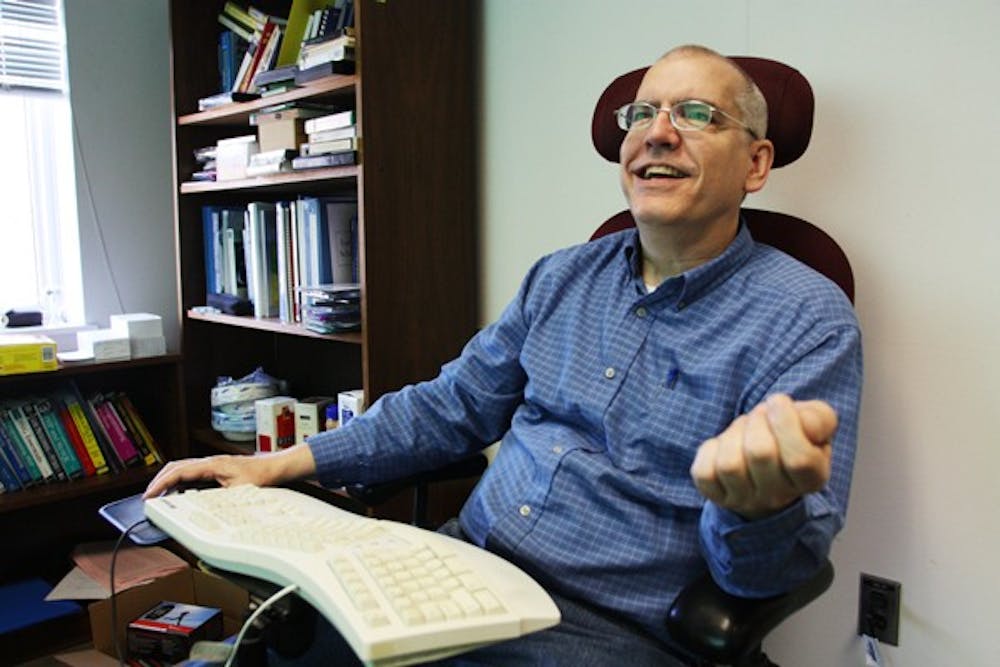Computer science professor Gary Bishop is motivated by the 15-year-old students with cerebral palsy and debilitating motor impairment who can’t talk or use their hands.
It’s those students, who are constantly dealing with people assuming they can’t understand the simplest of tasks, that inspired Bishop, the Center for Literacy and Disability Studies and the Department of Computer Science to develop the Tar Heel Reader.
Tarheelreader.org provides reading material beyond the picture books of 3- or 4-year-olds for teens with developmental disabilities who are just learning to read.
On March 3, the one millionth book was read on the site. Teachers and parents can access Tar Heel Reader and create books for their students or teach their students how to make online books themselves.
Books are written using pictures under the creative commons license on Flickr, a photo-sharing site, and can be created and read online using a simple interface that requires clicking only one key.
Before Tar Heel Reader, reading material for disabled teenagers was mostly created by individual teachers, Bishop said.
“These students are reading on a 3- to 4-year-old reading level, but books about things 15-year-olds are interested in are not available.”
The site receives slightly more than 100 books per week and has expanded internationally.
Bishop believes that the large number of books read in Asia might be used to teach English as a second language and observed that foreign-language teachers might be using the site to teach languages to students.
The site is particularly popular in Australia, where Karen Erickson, director of the UNC Center for Literacy and Disability Studies, traveled in June to work with teachers about literacy issues for disabled students.
Bishop’s students at UNC often contribute books to the site and are continuing to expand the ever-growing network of books, teachers and students.
Bishop is also working with local educators and his students to create more educational tools for disabled children — specifically computer games for the blind.
After 10 years of collaborating with orientation and mobility specialist Diane Brauner, Bishop has also developed computer games such as “SamiSays” and “Hark the Sound,” auditory games for children with vision problems.
“When Gary and I first connected, I was working with kindergarten kids, and my blind kids were basically sitting in the corner listening to books on tape while other kids on the computer were using games reinforcing skills learned in the classroom,” Brauner said. “We needed to come up with some games that will work for these kids so they’re not sitting in the corner.”
All of the games produced at UNC are downloaded or given away for free. The games are used in classrooms, computer labs and the homes of blind students.
As of last year, the games were used in more than 80 countries, through online downloads or CDs sent by request.
The games focus on both educational aspects and real life lessons that are often more difficult for visually impaired students to learn.
Bishop seeks to claim the time in the classroom that disabled students lose when teachers provide computer games and books that work primarily for students without disabilities.
His long-term goal is a situation where mentally disabled students are no longer passively watching television during class time, but are instead working on computer games designed for their needs.
“We’ve go to get people out there creating content, and we’ve got to make more game engines like that,” Bishop said.
Contact the University Editor at udesk@unc.edu.
Website created by UNC professor helps disabled teens read

Gary Bishop discusses his work on Tar Heel Reader, a Web site where students with disabilities can read visually enhanced books.


